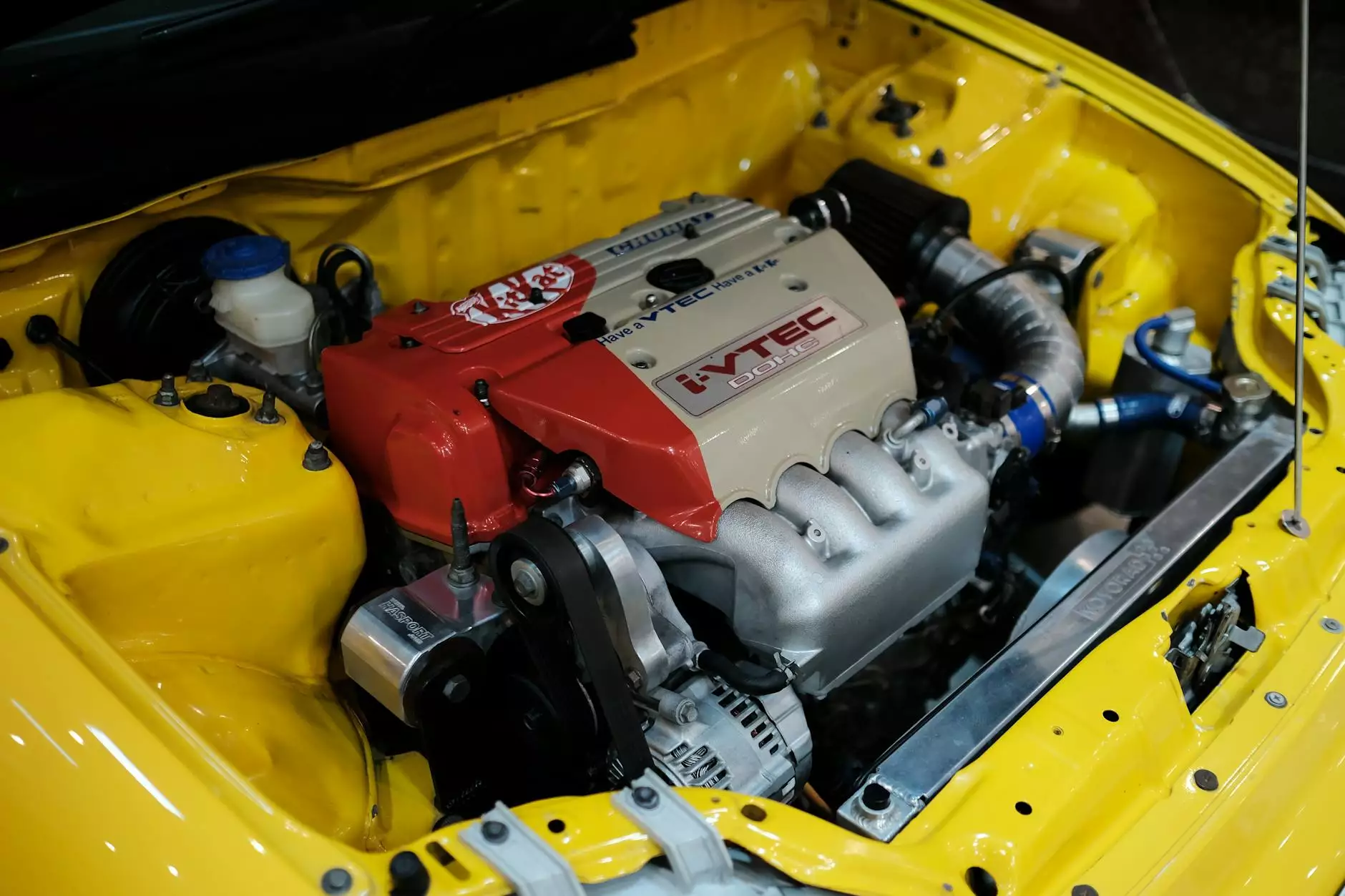The Crankshaft Car Part: A Vital Component in Diesel Engines

The crankshaft car part plays an integral role in the mechanics of diesel engines. Understanding its attributes and functionality can help automotive enthusiasts, mechanics, and anyone interested in vehicle maintenance appreciate how crucial this component is to engine performance. In this article, we will delve deep into the crankshaft’s significance, explore the available diesel engine parts, and highlight the role of spare parts suppliers like Client Diesel.
What is a Crankshaft?
The crankshaft is a long, cylindrical piece of metal that converts the linear motion of the pistons into rotational motion, which ultimately powers the vehicle's drivetrain. Every diesel engine comprises various parts that work together seamlessly, and the crankshaft is among the most important. It performs the following functions:
- Converts Linear Energy to Rotational Energy: The primary function of the crankshaft is to convert the up-and-down motion of the pistons into the circular motion needed to turn the wheels.
- Distributes Power: It distributes the power generated during combustion in a balanced manner, which is critical for the engine's overall performance.
- Supports Engine Components: The crankshaft serves as a support for other engine components such as the camshaft and timing belt.
- Houses Counterweights: It is designed with counterweights that balance the engine and reduce vibrations during operation.
The Importance of the Crankshaft in Diesel Engines
Understanding why the crankshaft is vital specifically in diesel engines requires insight into how these engines operate. Diesel engines are known for their efficiency and power. They work on the principle of compression ignition rather than spark ignition, meaning they rely heavily on the precise movements facilitated by the crankshaft.
Efficiency and Performance
A well-functioning crankshaft ensures optimum efficiency of a diesel engine. If any issues arise with the crankshaft, such as misalignment or wear and tear, the entire engine's performance can be compromised. Here are several reasons that highlight the importance of the crankshaft car part in diesel engines:
- Fuel Efficiency: Diesel engines require less fuel for the same amount of power output compared to gasoline engines. A properly functioning crankshaft helps maintain this efficiency.
- Power Output: The crankshaft's design must accommodate the intense pressure and high torque produced in a diesel engine, ensuring that power is smoothly transferred through the drivetrain.
- Longevity of the Engine: A durable crankshaft helps in extending the overall life of a diesel engine by minimizing excessive wear and tear on other components.
Common Issues with Crankshafts
Like any mechanical component, crankshafts can face issues that may hinder their performance. Recognizing these problems early can save vehicle owners time and money in the long run. Below are some common crankshaft issues:
1. Crankshaft Wear
Over time, the constant friction and pressure from the moving components can lead to significant crankshaft wear. Regular inspections and maintenance can help mitigate this issue.
2. Misalignment
If the crankshaft is not properly aligned, it may lead to excessive vibration, which causes further damage to surrounding components.
3. Oil Leaks
Damaged seals can lead to oil leaks, decreasing lubrication to crucial engine components, thus increasing the risk of severe engine damage.
4. Crankshaft Fracture
A fracture in the crankshaft can result from extreme forces during operation. This is a critical issue that requires immediate professional attention.
Maintaining Your Crankshaft
Proper maintenance is key to ensuring the longevity and performance of the crankshaft car part. Here are some maintenance tips:
- Regular Oil Changes: Keeping the engine oil clean and at the right level ensures that the crankshaft operates smoothly.
- Frequent Inspections: Regular inspections by a qualified mechanic can help identify potential issues early.
- Use Quality Parts: Always ensure that any replacements or spare parts used are of high quality, ideally sourced from reliable suppliers like Client Diesel.
Choosing Quality Spare Parts Suppliers
When it comes to replacing or purchasing a crankshaft, choosing the right supplier is crucial. Quality parts are essential for maintaining optimal engine performance. Here’s what to look for in spare parts suppliers:
1. Experience
Choose a supplier with a proven track record in providing high-quality parts for diesel engines. Experience often translates into reliability and expertise.
2. Warranty and Return Policy
A reputable supplier should offer a warranty on parts and a clear return policy, ensuring that any issues can be addressed without hassle.
3. Customer Support
Look for suppliers that offer excellent customer service. Being able to get assistance and advice can help you make informed purchasing decisions.
4. Range of Products
A good supplier should have a wide range of diesel engine parts, including crankshafts, pistons, and other essential components.
Conclusion
In conclusion, the importance of the crankshaft car part in diesel engines cannot be overstated. Its role in converting linear motion into rotational motion is fundamental for the performance and efficiency of a vehicle. Understanding its functions, potential issues, and maintenance requirements can greatly enhance the lifespan of your engine.
For those in need of quality parts, suppliers like Client Diesel stand out for their commitment to providing not just parts but comprehensive support for diesel engines. Proper maintenance and timely replacements will ensure that your diesel engine runs smoothly, providing the power and efficiency that it is renowned for.
Investing in quality, maintaining your crankshaft, and understanding its role will ensure that you get the most out of your diesel engines for years to come. Stay informed, stay proactive, and ensure your crankshaft and all engine components remain in prime condition for optimal vehicle performance.









